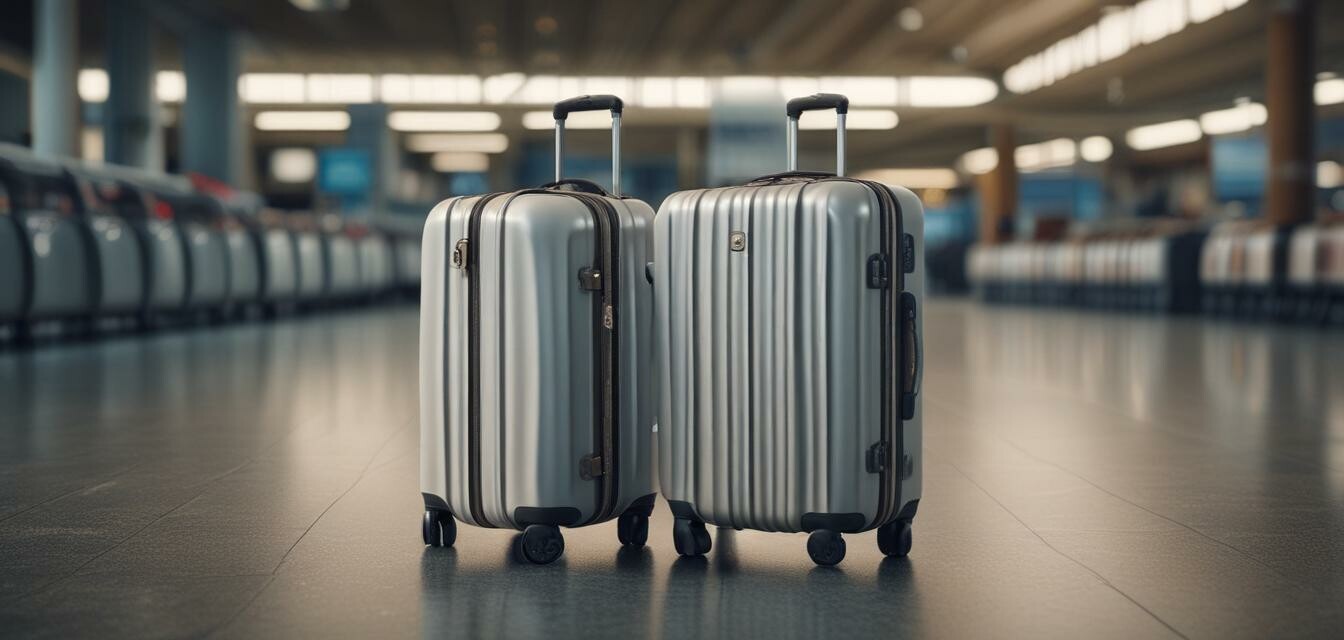
Comparison of Hard vs. Soft Shell Luggage: Which is Better?
Key Takeaways
- Hard shell luggage offers superior protection and is often more water-resistant.
- Soft shell luggage is typically lighter, more flexible, and may have exterior pockets for easier access.
- The choice between hard and soft shell comes down to your individual travel needs and style.
- Investment in quality luggage can enhance your travel experience by ensuring durability and functionality.
- Consider factors such as travel frequency, type of trips, and packing habits when making your choice.
When it comes to selecting the perfect luggage for your travels, the hard vs. soft shell debate often comes up. Understanding the characteristics of each type can significantly affect your travel experience. In this guide, we'll analyze the pros and cons of both hard and soft shell luggage styles, assisting you in making an informed choice tailored to your needs.
What is hard shell luggage?
Hard shell luggage, as the name suggests, is made from rigid materials like polycarbonate, ABS plastic, or aluminum. These materials form a solid exterior that provides enhanced protection for your belongings.
Pros of hard shell luggage
- Superior protection for fragile items due to its rigid structure.
- Often more water-resistant, which helps keep contents dry in slight rain.
- Sleek, modern designs that appeal to many travelers.
- Easy to clean surfaces that can be wiped down.
Cons of hard shell luggage
- Generally heavier than soft shell counterparts.
- Less flexible, which may limit packing options.
- Potential to scratch or dent over time.
What is soft shell luggage?
Soft shell luggage is usually constructed of polyester or nylon, offering flexibility and lightweight benefits. This type of luggage often features external pockets and expandable zippers to increase packing space when needed.
Pros of soft shell luggage
- Lightweight, making it easier to lift and maneuver.
- Flexible, which allows for greater packing versatility.
- Often includes additional pockets for easy access to travel essentials.
- Less prone to scratching compared to hard shell options.
Cons of soft shell luggage
- Less protective against impact and droppage.
- May absorb water, potentially leading to damp items inside.
- Stains may be harder to clean from fabric materials.
Comparison Table: Hard vs. Soft Shell Luggage
| Feature | Hard Shell | Soft Shell |
|---|---|---|
| Protection | Excellent | Good |
| Weight | Heavier | Lighter |
| Flexibility | Less flexible | More flexible |
| Water Resistance | Generally more resistant | Less resistant |
| Durability | Highly durable | Durable but prone to rips |
| Cleaning | Easy to clean | Harder to clean |
How to Choose the Right Luggage for Your Trip
Your decision between a hard shell or soft shell suitcase can depend on several factors. To assist in making an informed choice, consider the following:
- Travel Frequency: If you travel often and carry fragile items, a hard shell might be your best bet. Check out our Buying Guides for more insights.
- Type of Trip: For weekend getaways, soft shell may be more convenient. If you're embarking on a lengthy international trip, consider what fits your needs best.
- Packing Style: Be honest about your packing habits—do you overpack? Soft shell can stretch more if you need that extra space!
Pros of picking the right luggage
- Maximized space and efficiency in packing.
- Increased comfort during travel.
- Protection of valuables and essentials.
Cons of not considering luggage types
- Potential damage to belongings.
- Increased stress during travel due to poor organization.
- Luggage may not comply with travel standards.
Conclusion
In conclusion, both hard shell and soft shell luggage styles have unique benefits and drawbacks. Whether you prioritize protection or flexibility, understanding the key features of each can guide you to the luggage that meets your specific travel needs. Remember to weigh the factors discussed in this article to ensure you invest in luggage that not only meets your style but also enhances your overall travel experience.
Ready to find the perfect luggage for your next adventure? Explore our extensive collection of carry-on luggage, check-in suitcases, and travel accessories at Blue Luggage.